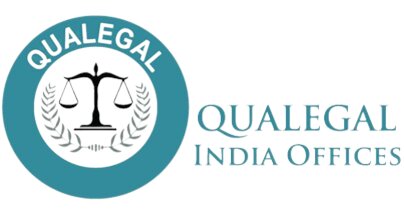Best Financial Services Regulation Lawyers in New Delhi
Share your needs with us, get contacted by law firms.
Free. Takes 2 min.
List of the best lawyers in New Delhi, India
About Financial Services Regulation Law in New Delhi, India
Financial Services Regulation in New Delhi, India, is an intricate and comprehensive system designed to oversee the operations and ensure the stability of the financial sector, including banking, securities, insurance, and non-banking financial companies (NBFCs). It is governed primarily by the Reserve Bank of India (RBI), the Securities and Exchange Board of India (SEBI), the Insurance Regulatory and Development Authority of India (IRDAI), and other key regulatory bodies. These regulations are crucial for maintaining economic equilibrium, protecting investors, and preventing financial fraud.
Why You May Need a Lawyer
Individuals or businesses may require legal assistance in Financial Services Regulation for several reasons:
- Compliance: Ensuring adherence to complex regulatory frameworks and avoiding legal penalties.
- Dispute Resolution: Resolving conflicts with financial institutions or regulatory bodies.
- Licensing: Navigating the process of obtaining necessary licenses for financial operations or services.
- Mergers and Acquisitions: Legal due diligence and documentation for financial transactions.
- Consumer Protection: Addressing grievances and fraudulent activities in financial services.
Local Laws Overview
New Delhi operates under a network of national financial regulations, which include:
- The Reserve Bank of India Act, 1934: Governs banking operations and functions of the RBI.
- The Securities and Exchange Board of India Act, 1992: Regulates securities markets to protect investors.
- The Insurance Regulatory and Development Authority Act, 1999: Oversees and monitors the insurance sector.
- The Banking Regulation Act, 1949: Provides a framework for the regulation of the banking sector.
- The Companies Act, 2013: Central legislation for company formation and operation.
Frequently Asked Questions
What is the role of the Reserve Bank of India in financial regulation?
The Reserve Bank of India regulates and supervises public sector banks, private banks, and NBFCs, ensuring they comply with the broader financial laws of the country.
Who oversees the securities markets in India?
The Securities and Exchange Board of India (SEBI) is responsible for regulating and developing the securities market, protecting investors and ensuring the market's efficiency.
What should I do if I suspect financial fraud?
If you suspect financial fraud, you should immediately report it to the respective financial institution and consider contacting a lawyer for guidance on legal recourse.
How are insurance companies regulated in New Delhi?
Insurance companies are regulated by the Insurance Regulatory and Development Authority of India (IRDAI), which ensures the industry's growth and protection of policyholders.
Are there specific regulations for digital banking services?
Yes, digital banking services are subject to regulations under the Payment and Settlement Systems Act, 2007 and guidelines issued by the RBI regarding digital transactions and security standards.
How do I obtain a financial services license?
Obtaining a financial services license usually involves applying to the relevant regulatory body, meeting specific requirements, and undergoing a thorough compliance review.
Can a lawyer help with regulatory compliance?
Absolutely. Lawyers specializing in financial services regulation can help ensure that your business complies with all necessary legal requirements, minimizing the risk of penalties.
What are the penalties for non-compliance with financial regulations?
Penalties can vary widely but may include fines, sanctions, disqualification of directors, or revocation of licenses, depending on the severity of the non-compliance.
How does the public access financial regulatory rulings?
Many regulatory bodies publish their rulings and guidelines on their official websites, providing the public with access to current regulations and decisions.
What legal options are available in case of a financial dispute?
Options include negotiation and settlement, arbitration, and litigation in courts, depending on the nature of the dispute and the entities involved.
Additional Resources
Here are some resources and organizations that could be helpful:
- Reserve Bank of India (RBI)
- Securities and Exchange Board of India (SEBI)
- Insurance Regulatory and Development Authority of India (IRDAI)
- Ministry of Finance, Government of India
- Confederation of Indian Industry (CII)
Next Steps
If you need legal assistance in Financial Services Regulation, consider the following steps:
- Identify your specific legal needs and gather all relevant documents.
- Research and contact a specialized lawyer or legal firm with expertise in financial regulation law.
- Schedule a consultation to discuss your case and explore legal strategies.
- Ensure that the legal representative is equipped to navigate both local and national regulations effectively.
- Stay informed about changes in financial regulations that may impact your situation.
Lawzana helps you find the best lawyers and law firms in New Delhi through a curated and pre-screened list of qualified legal professionals. Our platform offers rankings and detailed profiles of attorneys and law firms, allowing you to compare based on practice areas, including Financial Services Regulation, experience, and client feedback.
Each profile includes a description of the firm's areas of practice, client reviews, team members and partners, year of establishment, spoken languages, office locations, contact information, social media presence, and any published articles or resources. Most firms on our platform speak English and are experienced in both local and international legal matters.
Get a quote from top-rated law firms in New Delhi, India — quickly, securely, and without unnecessary hassle.
Disclaimer:
The information provided on this page is for general informational purposes only and does not constitute legal advice. While we strive to ensure the accuracy and relevance of the content, legal information may change over time, and interpretations of the law can vary. You should always consult with a qualified legal professional for advice specific to your situation.
We disclaim all liability for actions taken or not taken based on the content of this page. If you believe any information is incorrect or outdated, please contact us, and we will review and update it where appropriate.

















